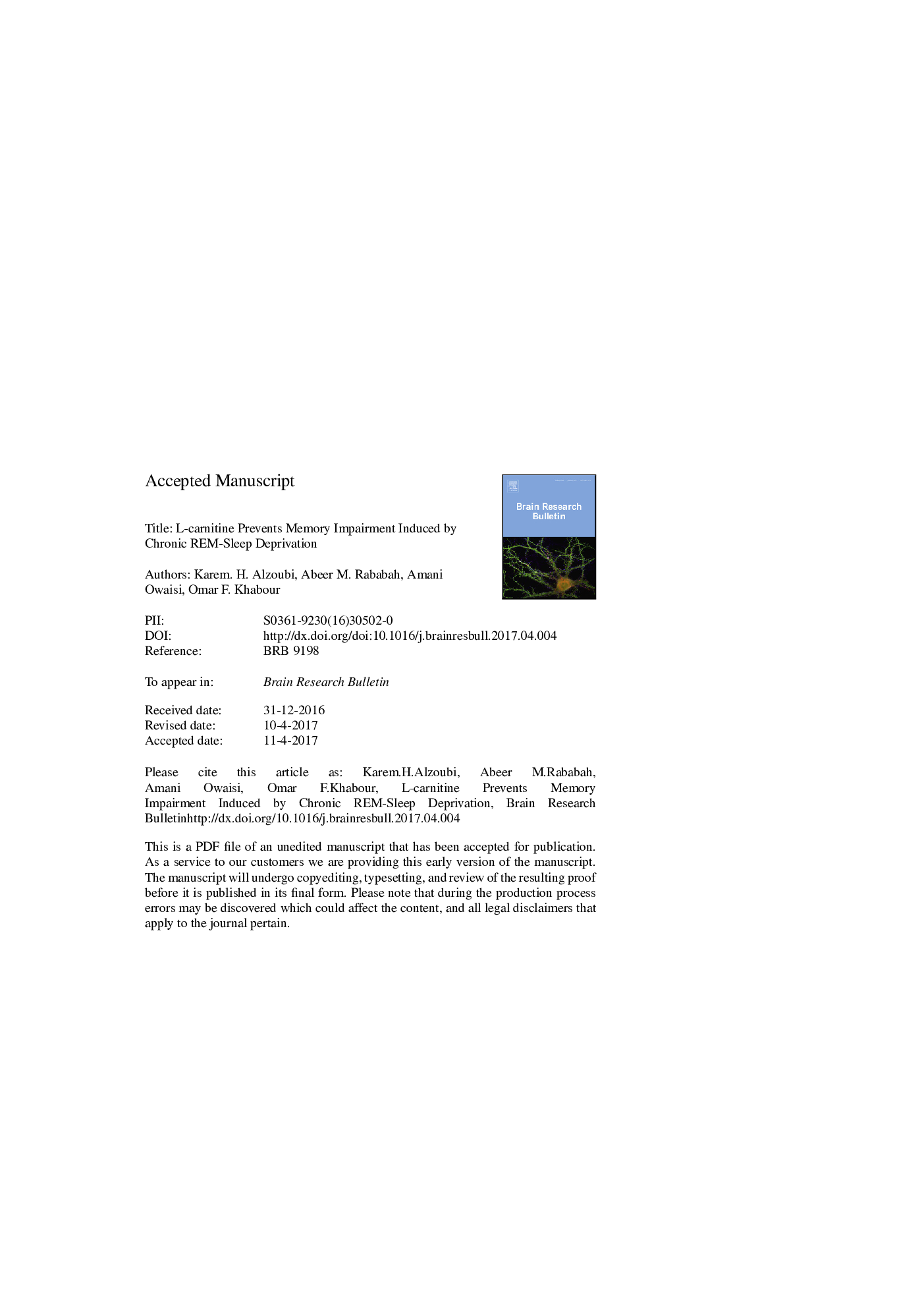| Article ID | Journal | Published Year | Pages | File Type |
|---|---|---|---|---|
| 5736275 | Brain Research Bulletin | 2017 | 23 Pages |
Abstract
Sleep deprivation (SD) negatively impacts memory, which was related to oxidative stress induced damage. L-carnitine is a naturally occurring compound, synthesized endogenously in mammalian species and known to possess antioxidant properties. In this study, the effect of L-carnitine on learning and memory impairment induced by rapid eye movement sleep (REM-sleep) deprivation was investigated. REM-sleep deprivation was induced using modified multiple platform model (8Â h/day, for 6 weeks). Simultaneously, L-carnitine was administered (300Â mg/kg/day) intraperitoneally for 6 weeks. Thereafter, the radial arm water maze (RAWM) was used to assess spatial learning and memory. Additionally, the hippocampus levels of antioxidant biomarkers/enzymes: reduced glutathione (GSH), oxidized glutathione (GSSG), GSH/GSSG ratio, glutathione peroxidase (GPx), catalase, and superoxide dismutase (SOD) and thiobarbituric acid reactive substance (TBARS) were assessed. The results showed that chronic REM-sleep deprivation impaired both short- and long-term memory (PÂ <Â 0.05), whereas L-carnitine treatment protected against this effect. Furthermore, L-carnitine normalized chronic REM-sleep deprivation induced reduction in the hippocampus ratio of GSH/GSSG, activity of catalase, GPx, and SOD. No change was observed in TBARS among tested groups (PÂ >Â 0.05). In conclusion, chronic REM-sleep deprivation induced memory impairment, and treatment with L-carnitine prevented this impairment through normalizing antioxidant mechanisms in the hippocampus.
Keywords
Related Topics
Life Sciences
Neuroscience
Cellular and Molecular Neuroscience
Authors
Karem. H. Alzoubi, Abeer M. Rababa'h, Amani Owaisi, Omar F. Khabour,
